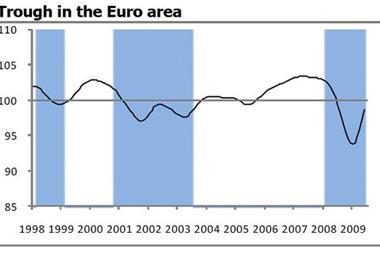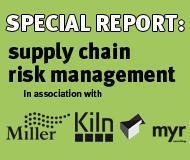Companies should continue their green initiatives even in a struggling economy
Bill Joss, chairman of Cats Solutions issued the following statement about environmental responsibility in a struggling economy.
Over the past few years there have been various initiatives taken at an international, domestic Government, corporate and personal level to drive forward environmentally friendly practices and attitudes. Some of these have been moderately successful, some have had little or no impact; it is clear that the take-up or gestation period is lengthy, and that there has to be a clear incentive in place for an individual or organisation to persist with often costly up front measures or changes to structure and operational procedure which may only deliver a medium or long-term payback.
In the corporate world, which includes both private and public sector organisations, from about 2004/5 onwards a growing number have included a ‘green’ agenda in their mission statements and public messaging. Some have actively promoted their intent to embrace environmental issues as central to their planning, decision-making and conduct; others have merely marketed themselves as ‘green aware’ without actually doing anything.
In particular, public bodies such as local authorities, universities, health trusts and Central Government departments have included compliance with environmental legislation in their approach to many aspects of their activities. They have also begun to extend this to their Supply Chain and external Partners, albeit normally only at the relatively superficial and early stage of tender submission and contract start.
Few have implemented a methodology for ongoing compliance. The mere act of highlighting environmental responsibility has of course had a positive effect, but little empirical evidence has been gathered to demonstrate that associated organisations have carried things further than the pages of the tender document.
During a period of economic recession such as the one we have now entered, many organisations which have stated publicly that they have a ‘green’ agenda are going to fail to drive these through as financial, resource and trading pressures build. Somehow these initiatives will fall off the radar in the ever increasing need to deliver with less resource and lower budgets, and at the decision making stage level price and cost cutting will dominate even more.
The green shoots of environmental responsibility will shrivel as budgetary and operational pragmatism bites, and there will be even less scrutiny over who has - and who has not - delivered on real, tangible environmental actions such as the reduction of carbon emission, recycling and energy saving.
Corporate social responsibility, which is the overall catch-all for environmental awareness in an organisation, is something that must be consistent and all-pervasive if it is going to be effective and become deeply embedded in an organisation’s psyche. A deep commitment to ongoing action, measures, policies and practices must be fostered and proclaimed throughout an organisation from Board level down, and the organisation must extend its best practice across all those who engage with it; from individuals who are customers, patients or recipients of services right through to Suppliers and Customers.
Specifically, for example an organisation requesting bids for goods or services must ensure that the potential supply chain must not only promise action, but deliver it as well
Environmental awareness and initiatives should be an essential part of the decision process on supply, rather than a ‘tick in the box’ during the tender process which is then ignored throughout the delivery process.
Why should a client not audit a supplier’s environmental practice on an ongoing basis?
If such best practice were to be adopted, not only would more commercial organisations invest in and develop environmentally friendly practices, technologies and processes but key organisations and suppliers that persevere with forward thinking ‘green’ initiatives through the current tough economic times would be given greater incentive and a clear return on investment to support such initiatives.
Greater adoption of the multitude of everyday measures which can be taken, which include such prosaic measures as recycling waste paper, reducing carbon emission through the use of more energy efficient machinery, recycling packaging, reducing average heating temperatures and simply switching lights off can and should be monitored. Those who go further – planting trees, generating solar or wind power, deploying electric vehicles, should be supported and recognised.
As long as corporate social responsibility is seen as a voluntary rather than a necessary action in legal terms, many supplier organisations will continue to ‘green wash’ to attract more business leads, whilst many organisations that have jumped on the green bandwagon in the last couple of years are now finding that their tight budgets are forcing them to put green initiatives on hold. The danger is that they will cease to include environmental factors as critical in decision-making and will not properly differentiate between suppliers who are genuinely ‘green’ and those who are not.
Environmental responsibility should be a vital component of all operations, be they commercial, industrial or public service-orientated. Procurement process should underpin an organisation’s intent to drive through ‘green’ habits until they become ingrained in everyday life.
Being able to demonstrate that you have a responsible attitude towards society at large and the environment should be a fundamental duty and not just a marketing tool used to get through a tender. Whilst it should help generate new business and contracts, it should be a commitment that is held through thick and thin, and those who do maintain a genuine ongoing commitment should get the credit they deserve.



















